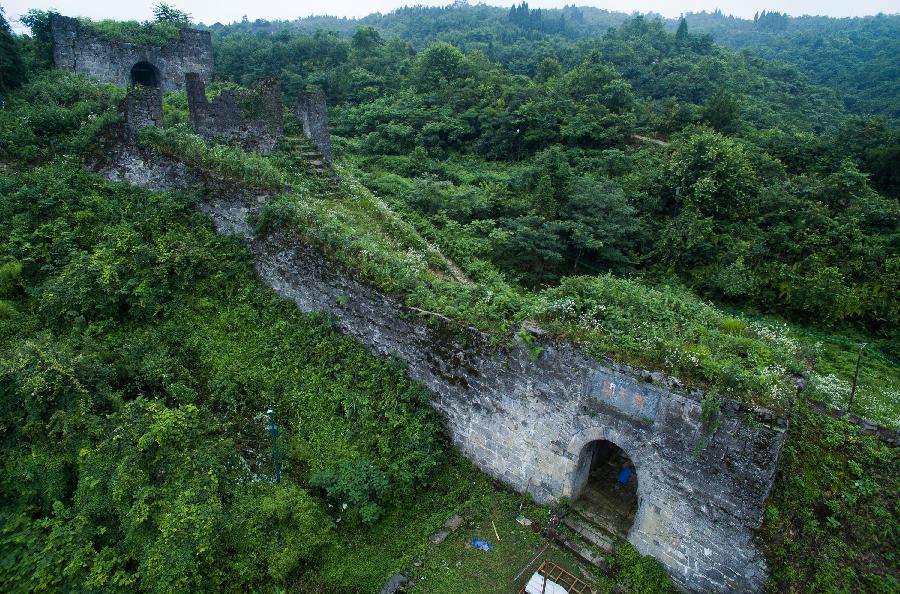

 |
| Photo taken on July 3, 2015 shows an aerial view of Hailongtun Fortress in southwest China's Guizhou Province. Tusi sites -- the remains of an ancient political system adopted by Chinese emperors to govern ethnic minority regions in south-central and southwest China -- were inscribed in the World Heritage List on Saturday. The inscribed sites, located in mountainous areas, are Laosicheng in Hunan Province, Tangya in Hubei Province and Hailongtun Fortress in Guizhou Province. Tusi literally means hereditary tribal headmen appointed by Chinese emperors to govern the often unruly ethnic minority regions in the central and western parts of south China, where the specific tribal governance system was adopted from the 13th to the early 20th century. (Xinhua/Liu Xu) |
Day|Week

 Father’s love is like a mountain
Father’s love is like a mountain Walnut too hard for cellphone screen
Walnut too hard for cellphone screen Girls in leaf bikinis perform pole dance on the beach
Girls in leaf bikinis perform pole dance on the beach Fascinating images of Jiuzhaigou Valley
Fascinating images of Jiuzhaigou Valley "Levitating" pole dancer
"Levitating" pole dancer Special armed police attend 'devil trainings' in Hunan
Special armed police attend 'devil trainings' in Hunan Top 10 terrifying tourist sites in China
Top 10 terrifying tourist sites in China Beautiful and smart - post-90s college teacher goes viral
Beautiful and smart - post-90s college teacher goes viral